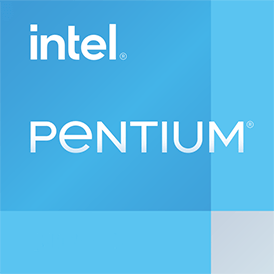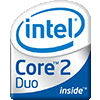
Intel Pentium 2030M Benchmark, Test and specs
Last updated:
The Intel Pentium 2030M is a 2 core processor. It can handle 2 threads simultaneously and was introduced in Q1/2013. The Intel Pentium 2030M is based on the 4. generation of the Intel Pentium series and requires a mainboard with the socket PGA 988. The Intel Pentium 2030M scores 502 points with one CPU core in the Geekbench 5 benchmark. When using all CPU cores, the result is 968 points.

| Name: | Intel Pentium 2030M |
|---|---|
| Family: | Intel Pentium (150) |
| CPU group: | Intel Pentium 2000 (5) |
| Architecture: | Ivy Bridge U |
| Segment: | Mobile |
| Generation: | 4 |
| Predecessor: | -- |
| Successor: | -- |
CPU Cores and Base Frequency
The 2 CPU cores of the Intel Pentium 2030M clock with 2.50 GHz. The number of CPU cores and the clock frequency of the processor are largely responsible for the overall performance.
| CPU Cores / Threads: | 2 / 2 |
|---|---|
| Core architecture: | normal |
| Cores: | 2x |
| Hyperthreading / SMT: | No |
|---|---|
| Overclocking: | No |
| Frequency: | 2.50 GHz |
| Turbo Frequency (1 Core): | -- |
| Turbo Frequency (2 Cores): | -- |
Internal Graphics
With the Intel HD Graphics (Ivy Bridge GT1), the Intel Pentium 2030M has an build in graphic solution. It has 6 SM processors, which have a total of 48 texture shaders. The iGPU not only enables games, but also significantly accelerates video playback.
| GPU name: | Intel HD Graphics (Ivy Bridge GT1) |
|---|---|
| GPU frequency: | 0.65 GHz |
| GPU (Turbo): | 1.10 GHz |
| Compute units: | 6 |
| Shader: | 48 |
| Hardware Raytracing: | No |
| Release date: | Q4/2012 |
| Max. displays: | 3 |
|---|---|
| Generation: | 7 |
| Direct X: | 11.0 |
| Technology: | 22 nm |
| Max. GPU Memory: | 2 GB |
| Frame Generation: | No |
Hardware codec support
Processors that have an integrated graphics can play videos faster and more efficiently. This can have a positive effect on the battery life of notebooks, for example.
| h265 / HEVC (8 bit): | No |
|---|---|
| h265 / HEVC (10 bit): | No |
| h264: | Decode / Encode |
| VP8: | No |
| VP9: | No |
| AV1: | No |
|---|---|
| AVC: | Decode / Encode |
| VC-1: | Decode |
| JPEG: | Decode |
Memory & PCIeThe Intel Pentium 2030M supports up to 32 GB memory in up to 2 (Dual Channel) memory channels. This results in a maximum memory bandwidth of 25.6 GB/s. |
|
| Memory type: | Memory bandwidth: |
|---|---|
| DDR3L-1333 DDR3L-1600 DDR3-1333 DDR3-1600 | 21.3 GB/s 25.6 GB/s 21.3 GB/s 25.6 GB/s |
| Max. Memory: | 32 GB |
| Memory channels: | 2 (Dual Channel) |
| ECC: | No |
| PCIe: | 2.0 x 16 |
| PCIe Bandwidth: | 8.0 GB/s |
Thermal ManagementWith the TDP, the processor manufacturer specifies the cooling solution required for the processor. The Intel Pentium 2030M has a TDP of 35 W. |
|
|---|---|
| TDP (PL1 / PBP): | 35 W |
| TDP (PL2): | -- |
| TDP up: | -- |
| TDP down: | -- |
| Tjunction max.: | 90 °C |
Technical details
The Intel Pentium 2030M has a 2.00 MB large cache. The processor is manufactured in 22 nm. Modern production increases the efficiency of the processor.
| Technology: | 22 nm |
|---|---|
| Chip design: | Monolithic |
| Socket: | PGA 988 |
| L2-Cache: | -- |
| L3-Cache: | 2.00 MB |
| AES-NI: | Yes |
| Operating systems: | Windows 10, Linux |
| Virtualization: | VT-x, VT-x EPT, VT-d |
|---|---|
| Instruction set (ISA): | x86-64 (64 bit) |
| ISA extensions: | SSE4.1, SSE4.2 |
| Release date: | Q1/2013 |
| Release price: | -- |
| Part Number: | -- |
| Documents: | Technical data sheet |
Rate this processor
Benchmark results

The benchmark results for the Intel Pentium 2030M have been carefully checked by us. We only publish benchmark results that have been created by us or that have been submitted by a visitor and then checked by a team member. All results are based on and fullfill our benchmark guidelines.
Geekbench 5, 64bit (Single-Core)
Geekbench 5 is a cross plattform benchmark that heavily uses the systems memory. A fast memory will push the result a lot. The single-core test only uses one CPU core, the amount of cores or hyperthreading ability doesn't count.

|
AMD Athlon II X4 750K
4C 4T @ 4.00 GHz |
||

|
Intel Xeon E5-2609 v3
6C 6T @ 1.90 GHz |
||

|
Qualcomm Snapdragon 480 5G
8C 8T @ 2.00 GHz |
||
|
|
Intel Pentium 2030M
2C 2T @ 2.50 GHz |
||

|
Intel Xeon E5-2603 v4
6C 6T @ 1.70 GHz |
||

|
Intel Celeron 2970M
2C 2T @ 2.20 GHz |
||

|
AMD Phenom II X6 1055T
6C 6T @ 3.30 GHz |
||
Geekbench 5, 64bit (Multi-Core)
Geekbench 5 is a cross plattform benchmark that heavily uses the systems memory. A fast memory will push the result a lot. The multi-core test involves all CPU cores and taks a big advantage of hyperthreading.

|
Intel Celeron 2970M
2C 2T @ 2.20 GHz |
||

|
Intel Core i5-4220Y
2C 4T @ 1.60 GHz |
||

|
Intel Atom C2550
4C 4T @ 2.60 GHz |
||
|
|
Intel Pentium 2030M
2C 2T @ 2.50 GHz |
||

|
Intel Core i5-3439Y
2C 4T @ 1.50 GHz |
||

|
Intel Core i3-2328M
2C 4T @ 2.20 GHz |
||

|
Intel Core i3-2330E
2C 4T @ 2.20 GHz |
||
Geekbench 6 (Single-Core)
Geekbench 6 is a benchmark for modern computers, notebooks and smartphones. What is new is an optimized utilization of newer CPU architectures, e.g. based on the big.LITTLE concept and combining CPU cores of different sizes. The single-core benchmark only evaluates the performance of the fastest CPU core, the number of CPU cores in a processor is irrelevant here.

|
Intel Core i3-3110M
2C 4T @ 2.40 GHz |
||

|
Intel Core i3-3120ME
2C 4T @ 2.40 GHz |
||

|
MediaTek Helio P65
8C 8T @ 2.00 GHz |
||
|
|
Intel Pentium 2030M
2C 2T @ 2.50 GHz |
||

|
UNISOC T610
8C 8T @ 1.80 GHz |
||

|
Samsung Exynos 8895
8C 8T @ 2.30 GHz |
||

|
Intel Pentium B980
2C 2T @ 2.40 GHz |
||
Geekbench 6 (Multi-Core)
Geekbench 6 is a benchmark for modern computers, notebooks and smartphones. What is new is an optimized utilization of newer CPU architectures, e.g. based on the big.LITTLE concept and combining CPU cores of different sizes. The multi-core benchmark evaluates the performance of all of the processor's CPU cores. Virtual thread improvements such as AMD SMT or Intel's Hyper-Threading have a positive impact on the benchmark result.

|
Intel Core i3-2330M
2C 4T @ 2.20 GHz |
||

|
AMD Opteron X3216
2C 2T @ 1.60 GHz |
||

|
Intel Celeron G1620
2C 2T @ 2.70 GHz |
||
|
|
Intel Pentium 2030M
2C 2T @ 2.50 GHz |
||

|
Qualcomm Snapdragon 821
4C 4T @ 2.40 GHz |
||

|
Qualcomm Snapdragon 820
4C 4T @ 2.15 GHz |
||

|
Qualcomm Snapdragon 439
8C 8T @ 1.95 GHz |
||
iGPU - FP32 Performance (Single-precision GFLOPS)
The theoretical computing performance of the internal graphics unit of the processor with simple accuracy (32 bit) in GFLOPS. GFLOPS indicates how many billion floating point operations the iGPU can perform per second.

|
MediaTek Helio X20
ARM Mali-T880 MP4 @ 0.78 GHz |
||

|
Intel Atom x6214RE
Intel UHD Graphics 10th Gen (16 EU) @ 0.40 GHz |
||

|
Intel Atom x6414RE
Intel UHD Graphics 10th Gen (16 EU) @ 0.40 GHz |
||
|
|
Intel Pentium 2030M
Intel HD Graphics (Ivy Bridge GT1) @ 1.10 GHz |
||

|
Intel Core i3-2115C
Intel HD Graphics 2000 @ 1.10 GHz |
||

|
Intel Core i3-2130
Intel HD Graphics 2000 @ 1.10 GHz |
||

|
Intel Core i3-2120T
Intel HD Graphics 2000 @ 1.10 GHz |
||
Estimated results for PassMark CPU Mark
Some of the CPUs listed below have been benchmarked by CPU-monkey. However the majority of CPUs have not been tested and the results have been estimated by a CPU-monkey’s secret proprietary formula. As such they do not accurately reflect the actual Passmark CPU mark values and are not endorsed by PassMark Software Pty Ltd.

|
Intel Core i7-2610UE
2C 4T @ 1.50 GHz |
||

|
AMD GX-415GA
4C 4T @ 1.50 GHz |
||

|
Intel Celeron N4000C
2C 2T @ 2.60 GHz |
||
|
|
Intel Pentium 2030M
2C 2T @ 2.50 GHz |
||

|
Intel Core i3-4012Y
2C 4T @ 1.50 GHz |
||

|
MediaTek MT8176
6C 6T @ 2.00 GHz |
||

|
Intel Core2 Duo E8700
2C 2T @ 3.50 GHz |
||
Benchmarks

Geekbench 5 (SC)
2,488 entries
2,488 entries

Geekbench 5 (MC)
2,461 entries
2,461 entries

Geekbench 6 (SC)
1,755 entries
1,755 entries

Geekbench 6 (MC)
1,703 entries
1,703 entries

FP32 SP (iGPU)
2,042 entries
2,042 entries

PassMark CPU-Mark
2,392 entries
2,392 entries
Popular comparisons
back to index





